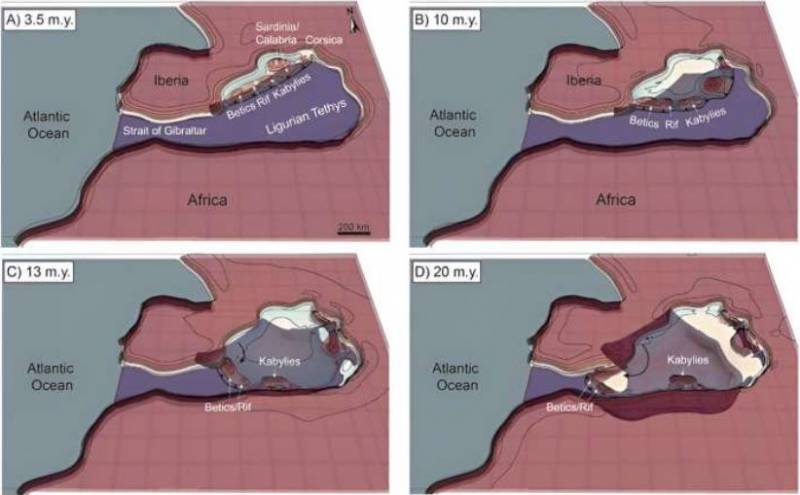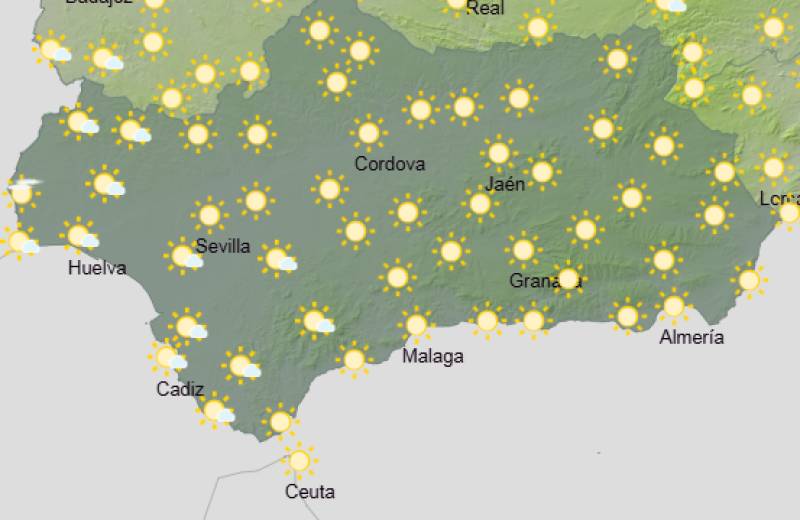
To be listed on the haciendadelalamo TODAY MAP please call +34 968 018 268.
article_detail
Date Published: 04/06/2024
The Strait of Gibraltar could disappear: This is when, according to experts
A previously dormant Gibraltar zone has begun gradually slipping towards the Atlantic Ocean

A recent study published in the journal of Geology has revealed that the Strait of Gibraltar could completely disappear in the future. This is due to the spread of what’s known as the subduction zone – the boundary that separates the Eurasian Plate and the African Plate.
This zone, which was believed to be inactive, has gradually been shifting position over time, extending towards the Atlantic Ocean. Subduction zones occur where one tectonic plate slides beneath another and descends into the Earth's mantle, creating intense pressure and heat that may eventually result in mountain building, earthquakes and volcanoes.
Researchers believe that this movement of the Gibraltar subduction zone could trigger significant changes in the geological makeup of the Atlantic Ocean, possibly generating a "ring of fire"—an area characterised by frequent seismic and volcanic events—similar to the existing one encircling the Pacific Ocean.
However, it is essential to emphasise that this phenomenon pertains to long-term geological processes occurring over millions of years rather than immediate concerns.
The study, carried out by an international team of scientists from the universities of Lisbon and Mainz, uses advanced 3D geodynamic models to simulate for the first time how a subduction system will form in the Atlantic, similar to the Pacific Ring of Fire.
Specifically, the computational model predicts that a subduction zone currently beneath the Strait of Gibraltar will spread into the Atlantic within a geological timeframe of approximately 20 million years. "When that happens, the Atlantic will really start to close," researcher João Duarte explained.
Until now, many scientists believed that the Gibraltar subduction zone was dormant due to its slowing over the last million years. However, the new study suggests that this area will reactivate, invading the Atlantic and accelerating tectonic activity in the region.
"Studying Gibraltar is a very important opportunity, because it allows us to observe the process in its early stages, right when it is happening," says Duarte.
This will allow scientists to better understand the mechanisms of subduction and their impact on the geological evolution of the planet.
Join our Andalucía Weather Watch Facebook group for regular climate change and weather news
Image: João C. Duarte
Loading
See more environmental news about Spain:
OR
Sign up for the Spanish News Today Editors Roundup Weekly Bulletin to get a comprehensive email with all the week’s news for Spain, Murcia, Alicante and Andalucía.
Get a sneak peek – here are a few of our recent Subscription Bulletins:
Discount Special Offer subscription:
36.95€ for 48 Editor’s Weekly News Roundup bulletins!
Please CLICK THE BUTTON to subscribe.
Contact Murcia Today: Editorial 000 000 000 /
Office 000 000 000





















